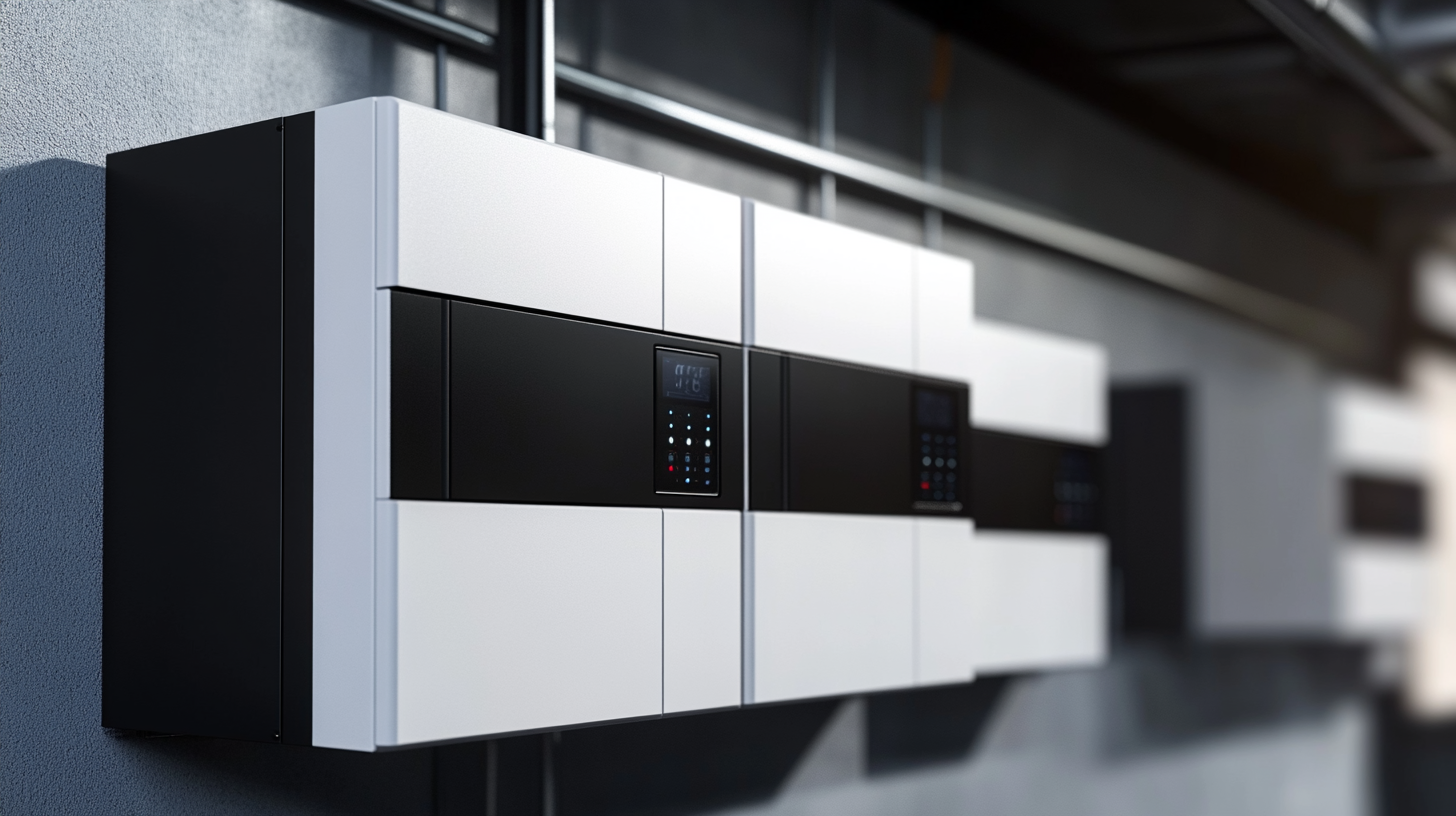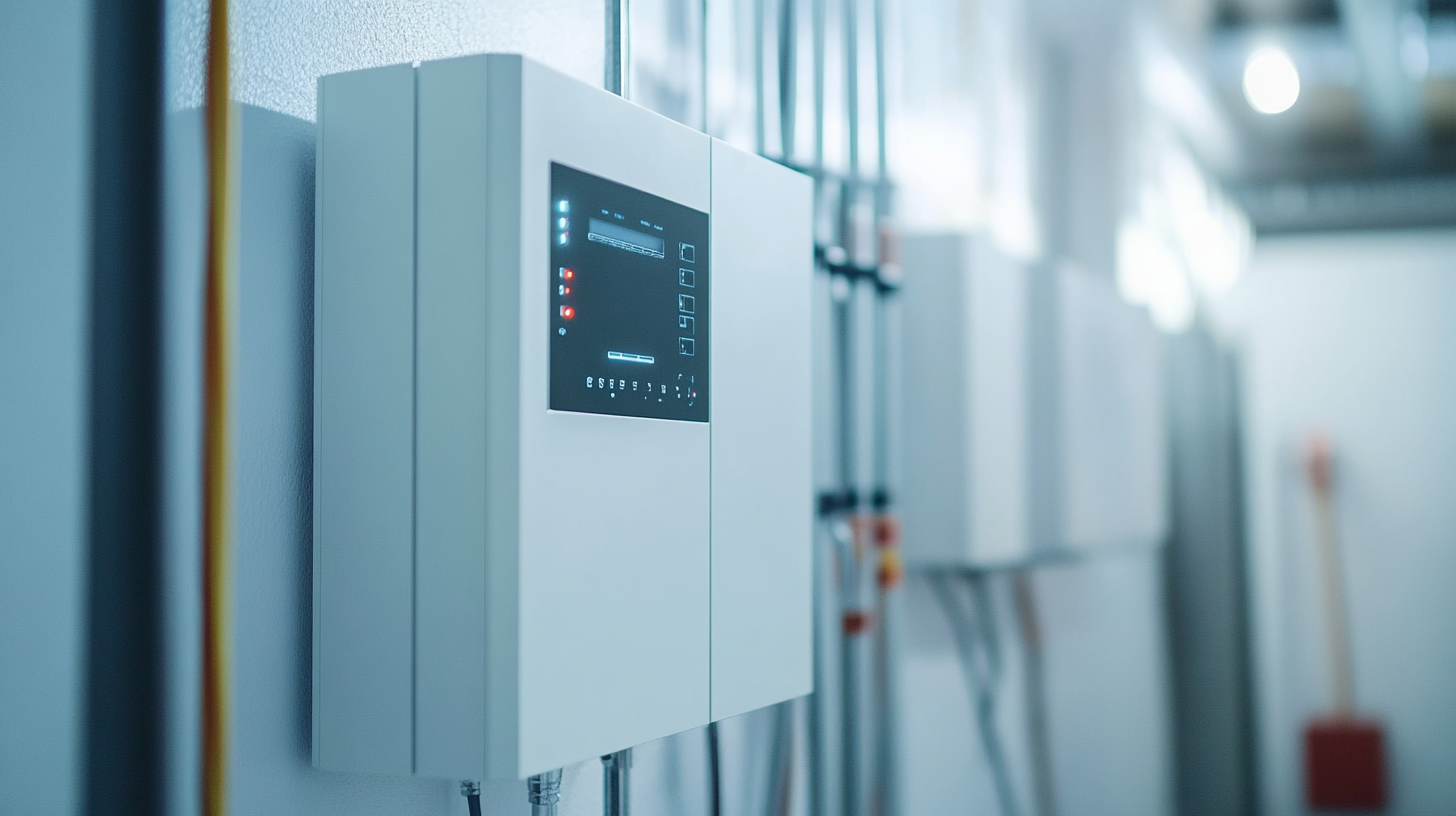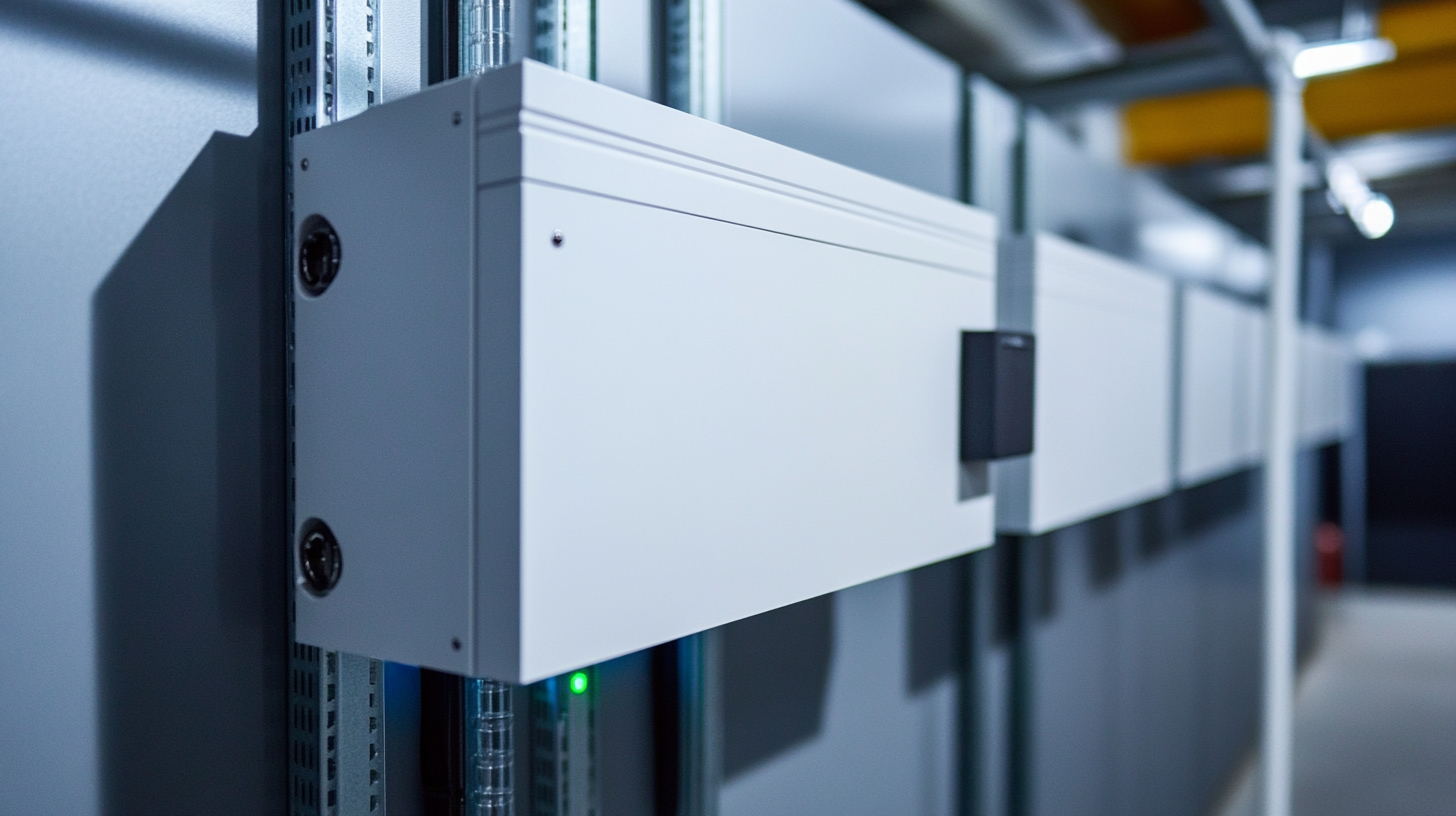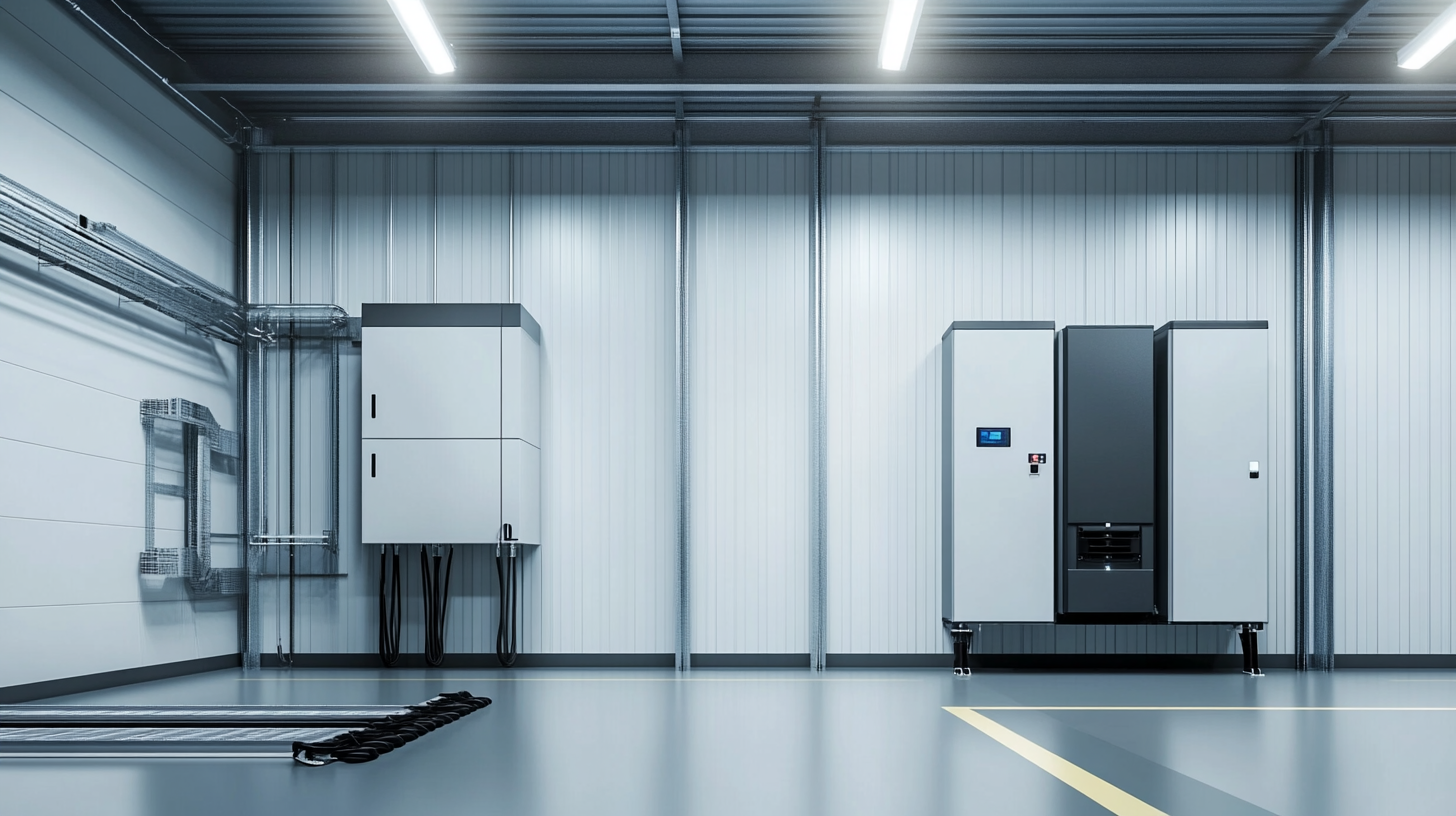Blog
Unlocking Quality: Strategies to Source Premium Pure Sine Wave Inverter Suppliers
You know, with technology changing so fast these days, the need for top-notch power solutions is higher than ever. One key player in this game is the Pure Sine Wave Inverter. It really shines when it comes to delivering clean, stable power. Unlike your typical inverters, pure sine wave inverters do a fantastic job at running those sensitive electronics and appliances we all rely on, which is why they’re the go-to choice for folks at home and businesses too. But here’s the thing — the market is practically overflowing with suppliers, each shouting about how they’ve got the best products. It can get pretty overwhelming for consumers and businesses trying to figure it all out.
So, if you're looking to navigate this tricky marketplace successfully, it’s super important to have some solid strategies for finding top-quality Pure Sine Wave Inverter suppliers. Being able to pinpoint trustworthy manufacturers can make a real difference in how well the product works and how long it lasts, and that means happy users. In this blog, we’re going to dive into some key strategies that’ll help you unlock quality in your purchases, ensuring you not only meet your power needs but also get a product that’ll stick around for the long haul.

Identifying Key Factors in Selecting Premium Pure Sine Wave Inverter Suppliers
When you're on the hunt for top-notch pure sine wave inverter suppliers, there are a bunch of important factors to keep in mind to make sure you're getting quality and reliability. According to a recent report from the International Energy Agency (IEA), the global inverter market is on track to grow by about 14% annually from 2021 to 2025. That just goes to show how much people are craving high-quality power management solutions these days. It's super important to choose suppliers that are skilled in using advanced technology; companies with the latest manufacturing techniques typically crank out inverters that are both efficient and built to last. Another thing to think about is whether the supplier sticks to industry standards and has the right certifications. The American National Standards Institute (ANSI) has some data that shows products meeting strict testing standards are way less likely to fail. So, it’s a good idea to check if a supplier has the necessary certifications like UL 1741 or IEC 62109; these can really be a sign that their products are up to snuff. Plus, going with suppliers who offer solid warranty policies can really add to your peace of mind when it comes to reliability. Oh, and let’s not forget about the importance of customer feedback and a supplier's reputation in the market. A survey by MarketsandMarkets found that, believe it or not, 68% of consumers prefer brands that come with strong positive reviews. So, looking for suppliers that have a track record of happy customers and good testimonials can really help build trust in what they’re selling. Besides just the technical stuff, developing good relationships with suppliers who genuinely care about customer service can lead to long-term partnerships. This means you’ll have reliable access to premium products and the support you need when you need it.

Assessing Supplier Credentials and Industry Reputation
So, when you're on the hunt for top-notch suppliers of pure sine wave inverters, one of the first things you need to do is check out their credentials and reputation in the industry. Basically, you want to know about their certifications—like, do they comply with the necessary industry standards? What’s their history like? Inverters are super important for a bunch of applications, from renewable energy setups to backup power solutions that you really don’t want to fail you. That’s why it’s vital to only work with suppliers who stick to international quality standards, such as ISO or UL approvals. This can make a huge difference in the reliability and safety of the products you're getting.
Also, digging into a supplier’s reputation can give you a good feel for how trustworthy they are and the quality of their stuff. Checking out customer reviews, testimonials, and even case studies can really help you see how happy past clients have been. Plus, don’t underestimate the power of chatting in industry forums or social media groups. Those conversations can offer some gems of wisdom about a supplier's past performance. Generally, suppliers that have been around for a while tend to prove they can deliver quality consistently—especially in an industry where performance is key.
And hey, building a good relationship with your potential suppliers is super important too. It’s a good idea to talk directly with them—this way, you can get a clearer picture of what they can bring to the table and how committed they are to quality. Ask them about their manufacturing processes, what kind of after-sale support they offer, and their product warranties. A reputable supplier should be open and happy to share detailed info with you as a way to show they’re serious about providing reliable products. By keeping these points in mind, you can make smarter choices when it comes to selecting suppliers that meet your quality standards.

Evaluating Product Quality and Performance Standards
So, when you're checking out pure sine wave inverters, one of the big things to think about is the quality and performance of the product. These little gadgets are super important because they convert direct current (DC) to alternating current (AC), so you really need to make sure they’re reliable and efficient. A good starting point is to look into the certifications these products have. You want to see compliance with international standards like IEC or UL—these mean the inverters have been through some serious testing to ensure they're safe, reliable, and actually perform well.
Next, take a good look at the inverter's specifications. Things like total harmonic distortion (THD), continuous power output, and surge capacity can really tell you how the inverter will handle tough situations. You definitely want a high-quality inverter that doesn't overheat or fail when demand is high. Plus, checking out reviews and feedback from folks who've used the products can be a treasure trove of insights on how durable and effective these inverters are, which can really help you make a well-informed choice.
And hey, don’t forget about after-sales support and warranty terms when you’re picking a supplier. A solid supplier will usually offer good warranties and quick customer service—that’s a clear sign they believe in their product’s quality. Building a good relationship with a supplier who cares about quality and customer satisfaction will make your whole process of sourcing pure sine wave inverters a lot smoother and more reliable.

Establishing Strong Communication and Support Networks
You know, when it comes to finding top-notch suppliers for pure sine wave inverters, having solid communication and support networks is absolutely key. These inverters are super important because they deliver clean, stable electricity, which is vital for everything from renewable energy setups to sensitive electronics. A recent report by Technavio has some eye-opening news: the global market for pure sine wave inverters is expected to grow by about 10% a year, and it's set to hit over $4 billion by 2025! That really shows how crucial it is to build relationships with reliable suppliers who can keep up with the rising demand.
So, how do we actually create those effective communication channels? Well, it’s all about being transparent and dependable. Honestly, having open conversations about product specs, what everyone expects, and timelines not only helps build trust but also makes it easier to tackle any potential hiccups that pop up. A survey from Supply Chain Insights found that a whopping 64% of suppliers really appreciate proactive communication from buyers. That tells us that brands that keep the lines open often have better luck negotiating good prices and favorable terms.
Plus, setting up a support network with these suppliers can really amp up product quality and after-sales service. Taking the time to understand their processes, certifications, and quality checks can lead to some pretty strong partnerships. When both sides are committed to high standards, it can really cut down on defects and make sure things get delivered on time. According to the International Journal of Production Economics, companies that nurture solid relationships with their suppliers see a 20-30% bump in operational efficiency—definitely a good reason to prioritize communication in the procurement game!
Negotiating Favorable Terms and Conditions with Suppliers
You know, negotiating good terms with suppliers in the inverter industry has really gotten complicated lately, especially with all the changes in global trade policies. I mean, with the U.S. slapping on some serious tariffs, it's shaking things up for anyone sourcing those high-quality pure sine wave inverters. Businesses are really having to rethink their negotiation tactics to deal with the risks and rising costs. Reports are saying that tariffs on imports from China have shot up to a whopping 104%! So, suppliers are looking for solid frameworks to handle these extra costs. This means it’s more crucial for entrepreneurs to have open chats with potential suppliers about pricing and delivery timelines—transparency is key here.
And here’s a thought: companies could really benefit from using data analytics to get a grip on how these tariffs affect what suppliers are charging. There’s been talk that over 25% of prices for imported consumer goods have jumped thanks to these tariffs. So, locking in agreements that let you adjust prices based on the market fluctuations can help protect against any nasty cost surprises. Building strong relationships based on trust means companies can negotiate terms that not only help their bottom lines but also keep the supply chain steady.
In this unpredictable climate, it’s super important to understand a supplier’s cost structure and how tariffs are impacting their pricing. People in the industry are stressing that we need to be agile in our negotiations, because sticking to rigid contracts can lead to headaches when the economy takes a downturn. So, really digging into the financial health and pricing strategies of potential suppliers will help businesses craft agreements that work for both sides. In the long run, this could lead to some solid partnerships in the inverter market.
